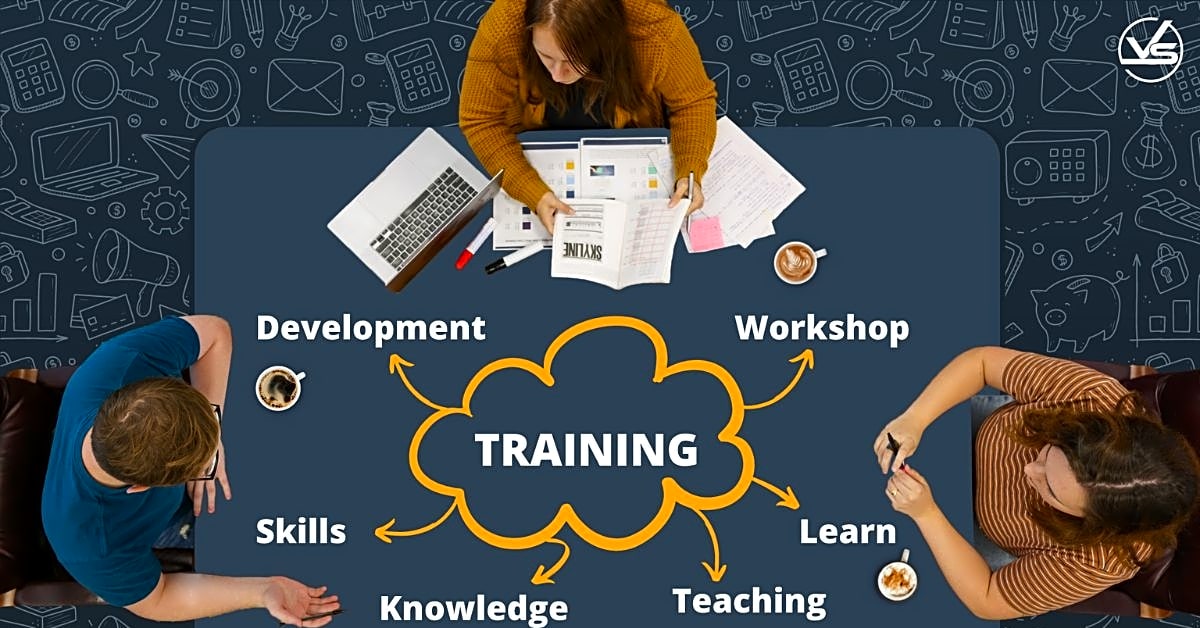Building a strong and successful team is crucial for any business, and it all starts with identifying the strengths and weaknesses of your team. By understanding what your team excels at and where they may need improvement, you can effectively strategize and manage your team to reach their full potential. In this article, we will dive into the topic of identifying team strengths and weaknesses, providing valuable insights and strategies for business management success. Whether you are a seasoned manager or just starting out, this information will be beneficial for anyone looking to improve their team’s performance. So let’s explore the key factors involved in identifying team strengths and weaknesses and how it can contribute to overall team building and development.
To effectively identify the strengths and weaknesses of your team, it is important to first understand the different aspects of team building and development. This includes management strategies, leadership skills, project management, time management, decision making, communication skills, problem solving, organizational skills, and productivity.
Management strategies are crucial for the success of any team. As a business owner or manager, it is your responsibility to create a cohesive and efficient team by implementing effective management techniques. This can include setting clear goals and expectations, providing regular feedback and communication, and promoting a positive work culture.
Leadership skills are also essential for identifying team strengths and weaknesses. A strong leader knows how to motivate and inspire their team, while also recognizing individual strengths and utilizing them to achieve success. Effective leaders also know how to delegate tasks and responsibilities in order to maximize productivity.
Project management is another important aspect of team building. This involves planning, organizing, and coordinating tasks in order to achieve a specific goal or project. By understanding each team member’s strengths and weaknesses, a project manager can assign tasks accordingly and ensure that the project is completed successfully.
Time management is crucial for any business, as it directly affects productivity. By identifying team members who excel at managing their time effectively, you can delegate time-sensitive tasks to them and improve overall efficiency. On the other hand, identifying team members who struggle with time management can help you provide them with the necessary support and resources to improve in this area.
Decision making is an important skill for any team member, as it allows for efficient problem solving and progress. By understanding the decision-making process of each team member, you can identify who excels in this area and utilize their skills for important decisions.
Effective communication is key for successful teamwork. By recognizing each team member’s communication style, you can facilitate better communication among team members and avoid misunderstandings and conflicts. Good communication also fosters a positive work environment and promotes collaboration.
Problem solving is a critical skill for any team, as it allows for efficient resolution of issues and obstacles. By identifying team members who excel in this area, you can rely on them to handle difficult situations and come up with creative solutions.
Organizational skills are important for the overall efficiency of a team. By understanding each team member’s organizational strengths and weaknesses, you can delegate tasks that align with their strengths and provide support in areas where they may struggle.
Lastly, productivity is a crucial aspect of any successful business. By identifying team members who consistently produce high-quality work, you can recognize and reward them for their efforts. Additionally, by identifying team members who may struggle with productivity, you can provide them with the necessary resources and support to improve.
In conclusion, identifying team strengths and weaknesses is essential for effective business management. By understanding the various aspects of team building and development, such as management strategies, leadership skills, project management, time management, decision making, communication skills, problem solving, organizational skills, and productivity, you can create a strong and cohesive team that drives your business towards success.
Communication Skills
Effective communication is crucial for the success of any team. It allows team members to share their ideas, concerns, and feedback in a clear and concise manner. This helps to build trust and understanding among team members, fostering a positive and productive work environment.
Good communication also helps to prevent conflicts and misunderstandings within the team. When team members are able to communicate effectively, they are less likely to have disagreements or misinterpretations, which can disrupt the team’s progress.
Moreover, effective communication promotes collaboration and teamwork. When team members are able to communicate openly and actively listen to each other, they are more likely to work together towards a common goal. This leads to better decision-making and problem-solving within the team.
As a business owner or manager, it is important to encourage and facilitate effective communication within your team. This can be done through regular team meetings, providing opportunities for open discussions, and promoting active listening skills among team members.
In conclusion, effective communication is essential for identifying and utilizing team strengths and weaknesses. By fostering good communication within your team, you can improve productivity, prevent conflicts, and promote collaboration for the success of your business.
Time Management
Time management is a crucial aspect of any successful business. In order to achieve maximum productivity and efficiency, it is important to have a solid strategy in place for managing time within your team. This not only helps to ensure that tasks are completed on time, but also allows for better prioritization and delegation of tasks.
One effective strategy for optimizing time management within your team is to establish clear goals and deadlines. By setting specific and achievable goals, team members are able to focus their efforts and work towards a common objective. This helps to eliminate any confusion or wasted time on unnecessary tasks.
Another important aspect of time management is effective communication. As a manager, it is important to have open lines of communication with your team in order to stay updated on the progress of tasks and address any potential roadblocks. Additionally, encouraging open communication among team members allows for better collaboration and can lead to more efficient problem-solving.
Lastly, it is important to regularly review and assess the effectiveness of your time management strategies. This can be done through analyzing team productivity and identifying any areas for improvement. By constantly evaluating and adjusting your approach, you can ensure that your team is making the most of their time and working towards achieving business success.
Project Management
Project management is a crucial aspect of running a successful business. It involves planning, organizing, and executing projects to achieve specific goals and objectives. As a business manager, it is important to have effective project management skills in order to ensure the success of your team.
To help you manage projects efficiently, here are some tips:
- Set clear goals and objectives: Before starting any project, it is important to have a clear understanding of what you want to achieve. Set specific, measurable, achievable, relevant, and time-bound (SMART) goals to guide your team towards success.
- Communicate effectively: Good communication is key to project management success. Make sure everyone on your team is on the same page and has a clear understanding of their roles and responsibilities.
- Use project management tools: There are many project management tools available that can help you stay organized and on track. Consider using tools like Trello, Asana, or Basecamp to streamline your project management process.
- Delegate tasks: As a business manager, it is important to delegate tasks to team members who have the necessary skills and expertise. This will not only help you save time but also ensure that the project is completed efficiently.
- Track progress: Keep track of the progress of your projects to ensure they are on schedule and within budget. This will help you identify any potential issues early on and make necessary adjustments.
Problem Solving
As a team, it is inevitable that problems will arise in the workplace. However, how these problems are approached and solved can greatly impact the success of a business. Here are some strategies for effective problem solving as a team:
- Identify the problem: The first step in solving any problem is to identify what the problem actually is. Encourage open communication within your team so that everyone feels comfortable sharing their perspectives and concerns.
- Brainstorm solutions: Once the problem has been identified, it’s time to come up with potential solutions. This can be done through brainstorming sessions where everyone can contribute their ideas.
- Evaluate and choose the best solution: After generating a list of solutions, evaluate each one and choose the one that is most feasible and effective for your team.
- Implement the solution: Once a solution has been chosen, it’s time to put it into action. Assign tasks and responsibilities to each team member to ensure a smooth implementation.
- Communicate and follow-up: It’s important to keep communication channels open throughout the problem-solving process. Follow-up with team members to ensure that the chosen solution is working and make adjustments if necessary.
By approaching and solving problems as a team, you can foster a sense of collaboration and teamwork within your business. This not only helps in finding effective solutions, but also strengthens your team as a whole.
Decision Making
When it comes to making important decisions for your business, it is crucial to have a clear understanding of your team’s strengths and weaknesses. This not only helps in identifying potential roadblocks, but also in making informed decisions that will benefit the business in the long run.
There are various techniques that can aid in effective decision making as a team. One such technique is brainstorming, where all team members come together to generate ideas and solutions. This allows for diverse perspectives and can lead to more innovative and well-rounded decisions.
Another technique is SWOT analysis, which stands for Strengths, Weaknesses, Opportunities, and Threats. This involves identifying the strengths and weaknesses of your team, as well as external factors that may impact decision making. By understanding these factors, you can make more informed decisions that take into account potential risks and opportunities.
It is also important to have open communication and collaboration within the team when making decisions. This ensures that all team members are on the same page and have a say in the decision-making process. It also allows for different viewpoints to be considered, leading to more well-rounded and effective decisions.
Overall, understanding how to make informed decisions as a team is crucial for the success of any business. By utilizing techniques such as brainstorming, SWOT analysis, and promoting open communication and collaboration, you can ensure that your team’s strengths and weaknesses are taken into account when making important decisions.
Management Strategies
Managing a team can be challenging, especially when it comes to identifying their strengths and weaknesses. As a business owner or manager, it is important to have effective strategies in place for managing your team in order to achieve success. Here are some key strategies that can help you in this process:
- Set clear expectations: It is important to set clear expectations for your team members in terms of their roles, responsibilities, and goals. This will help them understand what is expected of them and allow them to work towards achieving those goals.
- Communicate effectively: Communication is key in any team setting. Make sure to have open and honest communication with your team members, listen to their ideas and concerns, and provide constructive feedback.
- Encourage collaboration: Encouraging collaboration among team members can lead to better problem-solving and creativity. It also helps build a positive team dynamic and fosters a sense of camaraderie.
- Recognize and utilize individual strengths: Each team member brings their own unique strengths to the table. As a manager, it is important to recognize these strengths and assign tasks accordingly. This not only boosts individual confidence but also leads to better overall team performance.
- Provide opportunities for growth: In order for your team to continue to develop and improve, it is important to provide opportunities for growth and learning. This can include training, workshops, or even cross-functional projects.
By implementing these management strategies, you can effectively identify and utilize the strengths of your team while also addressing any weaknesses. This will not only lead to a more productive and efficient team but also contribute to the overall success of your business.
Productivity
In order to run a successful business, it is crucial to have a highly productive and efficient team. A team that works well together and is able to maximize their productivity can greatly contribute to the success of your business. Here are some strategies to help you increase productivity within your team:
- Clearly define roles and responsibilities: One of the main reasons for low productivity is confusion and overlapping responsibilities. By clearly defining each team member’s role and responsibilities, it ensures that everyone knows what they are responsible for and eliminates any confusion.
- Set specific goals and deadlines: Setting achievable goals and deadlines can motivate your team to work towards a common objective. This not only increases productivity but also improves teamwork and communication within the team.
- Implement effective communication: Good communication is key in any team. Encourage open communication and provide feedback regularly to ensure that everyone is on the same page. This will prevent any misunderstandings or conflicts that can hinder productivity.
- Provide the necessary resources: Make sure your team has the necessary resources and tools to perform their tasks efficiently. This includes training, software, and equipment. Investing in these resources can greatly improve productivity in the long run.
- Incentivize and reward: Recognizing and rewarding your team’s hard work can be a great motivator for increased productivity. Consider implementing a reward system for meeting goals or going above and beyond.
Organizational Skills
As a business manager, staying organized and efficient is crucial for the success of your team. It can be easy to get overwhelmed with tasks and responsibilities, but with the right organizational skills, you can ensure that everything runs smoothly and effectively.
One tip for staying organized is to create a schedule or to-do list for each day. This will help you prioritize tasks and stay on track. It’s also important to delegate tasks to team members and assign responsibilities. This not only helps with time management, but it also allows team members to feel valued and accountable for their work.
Another helpful organizational skill is effective communication. Make sure that everyone on your team is aware of deadlines, expectations, and any changes that may arise. This will prevent confusion and ensure that everyone is on the same page.
Additionally, utilizing technology and tools can greatly improve organizational skills. There are many project management and task tracking software options available that can help you and your team stay organized and on top of tasks.
In conclusion,
organizational skills are essential for business management success. By implementing these tips, you can improve efficiency, productivity, and overall success within your team.
Leadership Skills
Being an effective leader for your team is crucial when it comes to identifying and utilizing team strengths and weaknesses. A strong leader sets the tone for the entire team and creates an environment where everyone feels motivated and empowered to perform their best. Here are some key strategies for developing your leadership skills:
1. Communication is Key
Effective communication is the foundation of good leadership. It’s important to be transparent and open with your team, making sure that everyone is on the same page. This includes setting clear expectations, providing feedback, and actively listening to your team members.
2. Lead by Example
A good leader should not only tell their team what to do, but also show them through their own actions. Lead by example and demonstrate the qualities and behaviors that you expect from your team.
3. Delegate Tasks Appropriately
As a leader, it can be tempting to take on all the tasks and responsibilities yourself. However, effective delegation is essential for maximizing team strengths and improving weaknesses. Trust your team members and assign tasks based on their strengths and development areas.
4. Encourage Growth and Development
A strong leader invests in their team’s growth and development. This can include providing training opportunities, mentoring, and creating a culture of continuous learning.
By understanding and addressing each of these areas within your team, you can identify their strengths and weaknesses and work towards improving them. Remember that a strong and cohesive team is crucial for the success of any business.






